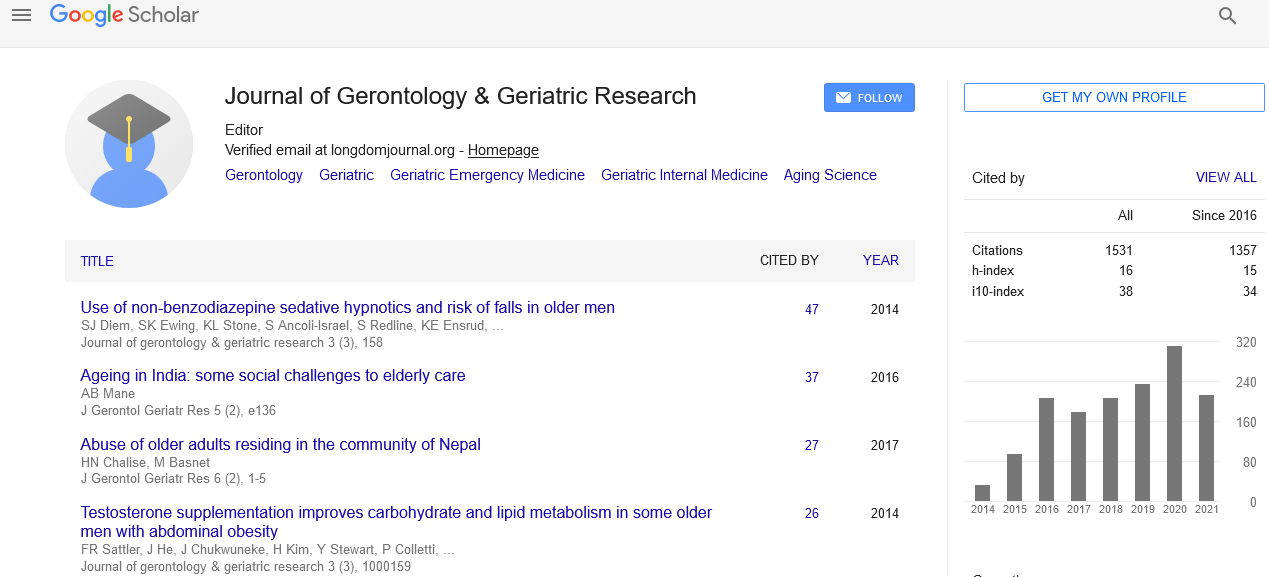PMC/PubMed Indexed Articles
Indexed In
- Open J Gate
- Genamics JournalSeek
- SafetyLit
- RefSeek
- Hamdard University
- EBSCO A-Z
- OCLC- WorldCat
- Publons
- Geneva Foundation for Medical Education and Research
- Euro Pub
- Google Scholar
Useful Links
Share This Page
Journal Flyer

Open Access Journals
- Agri and Aquaculture
- Biochemistry
- Bioinformatics & Systems Biology
- Business & Management
- Chemistry
- Clinical Sciences
- Engineering
- Food & Nutrition
- General Science
- Genetics & Molecular Biology
- Immunology & Microbiology
- Medical Sciences
- Neuroscience & Psychology
- Nursing & Health Care
- Pharmaceutical Sciences
Abstract
Integrated Dementia Care in the Center for Geriatrics and Gerontology at Kaohsiung Veterans General Hospital
Yu-Te Lin, Chih-Kuang Liang, Chia-Jung Lee, Miaw Ai Lin and Ya-Lie Ku
Due to the increasing aging and dementia populations all over the world, Taiwan has followed the global action plan to propose the seven key action areas. As one key action area, the authors conducted a systematic literature review regarding the diagnosis, treatment, care, and support of patients with dementia and their caregivers. The findings of a systematic literature review suggest that the case management model could be applied for dementia care; however, the evidence is still weak because of the roles and intensity of case managers, as well as their communication skills. Except for the literature review, the authors also introduced the center for geriatrics and gerontology at Kaohsiung Veterans General Hospital in southern Taiwan providing as the integrated dementia care. Additionally, 10-year long-term care plan 2.0 of Taiwan was also introduced and compared with the systems of integrated dementia care. Based on this model of long-term care provision, the Center for Geriatrics and Gerontology at Kaohsiung Veterans General Hospital has potential to be an A level center, the daycare center and aforementioned three dementia care units could function as B level care centers, and the Double-Bliss Welfare and Charity Foundation, as well as other local community organizations and activity centers, could provide C level care services. Furthermore, the correspondent author held the 2018 comprehensive practicum conference for integrated care of patients with dementia from January 19 to February 22, 2018 in collaboration with 19 nursing faculties from various nursing schools. Finally, the correspondent author intends to conduct further research in collaboration with the Center for Geriatrics and Gerontology at Kaohsiung Veterans General Hospital to further develop the “3D” (delirium, dementia, and depression) assessment scale and evidence-based care protocols.


